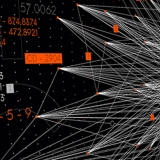
Předvídání a řízení dopadu změn
Předvídání a řízení dopadu změn tvoří jednu ze šesti hlavních činností pracovního programu nadace Eurofound na období 2021–2024. Nadace Eurofound předloží důkazy o strukturálním rozvoji, který má vliv na evropské hospodářství a trhy práce a který je do značné míry důsledkem digitalizace a přechodu na uhlíkově neutrální hospodářství , ale také krize COVID-19. Cílem výzkumu je pomoci tvůrcům politik předvídat tyto změny a připravit na ně evropské trhy práce a pracoviště.
Od roku 2021 bude nadace Eurofound zpřístupňovat informace o dopadu těchto megatrendů na životní a pracovní podmínky v EU. V oblasti digitalizace se výzkum zaměří na dopad na zaměstnanost a pracovní podmínky, jakož i na trh práce. Výzkum se bude mimo jiné zabývat sociálním dialogem a jeho rolí při utváření strukturálních změn, právního rámce, sociální ochrany a umělé inteligence. V návaznosti na předchozí výzkum o práci prostřednictvím platforem bude období 2021–2024 příležitostí zaměřit se na zmapování a vyhodnocení efektivity politických iniciativ v rámci řešení obtíží zjištěných u práce prostřednictvím platforem.
Cílem nadace Eurofound je také prozkoumat příslušné socioekonomické dopady a podpořit tak přechod EU na uhlíkově neutrální hospodářství, včetně oběhového hospodářství a zavedení nástroje EU na podporu oživení Next Generation EU. Tyto dopady zahrnují změny v oblasti zaměstnanosti a transformaci pracovních pozic a pracovních podmínek, jakož i distribuční dopad politik v oblasti změny klimatu. Část této činnosti bude navazovat na výsledky pilotního projektu o budoucnosti výroby provedeného nadací Eurofound.
V této činnosti bude nadace Eurofound pokračovat i v letech 2021–2024, přičemž bude spolupracovat s různými mezinárodními organizacemi a agenturami EU, například s Evropskou agenturou pro životní prostředí (EEA) na téma sociálních dopadů politiky v oblasti změny klimatu. Bude také konsolidována stávající spolupráce s dalšími výzkumnými subjekty v oblasti digitalizace – Společným výzkumným střediskem (JRC), Agenturou EU pro základní práva (FRA) a Evropskou agenturou pro bezpečnost a ochranu zdraví při práci (EU-OSHA). Počítá se rovněž s rozvojem partnerství s Mezinárodní organizací práce v oblasti měnícího se světa práce.
- Infografika: Předvídání a řízení dopadu změn v EU
„Evropské hospodářství a trhy práce se vyznačují tím, že se na nich projevuje dopad megatrendů, zejména digitalizace a přechodu na uhlíkově neutrální hospodářství. Je důležité prozkoumat, jak přesně tyto transformace fungují, co se mění a jaký to bude mít dopad nejen na podniky, ale také na pracovní sílu a společnost.“
Irene Mandl, vedoucí oddělení zaměstnanosti


















